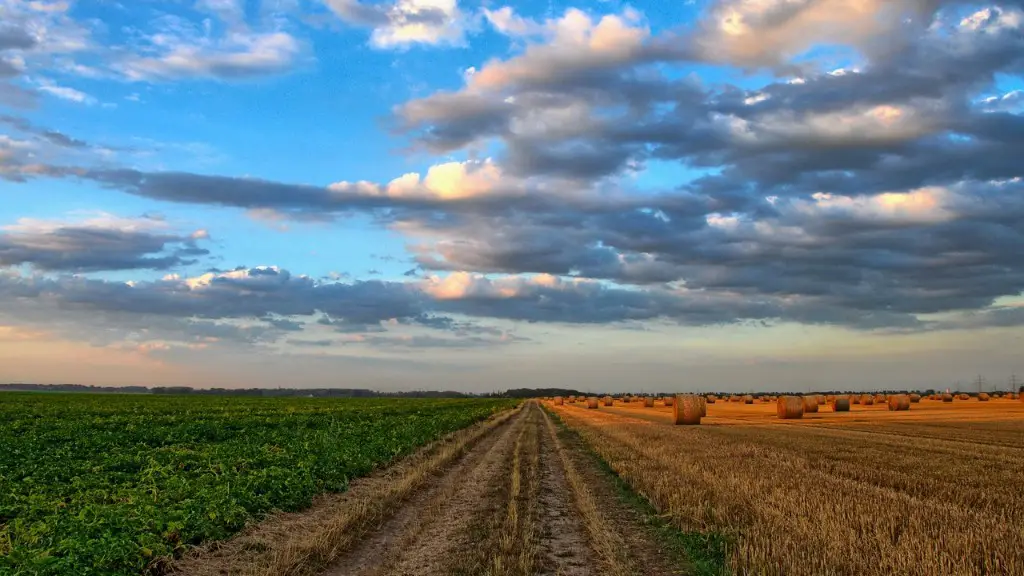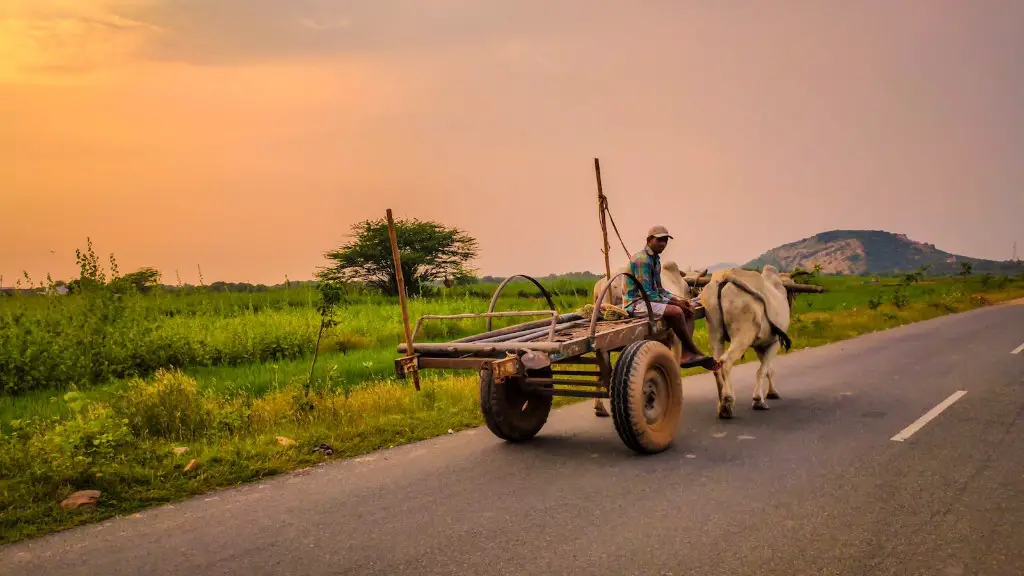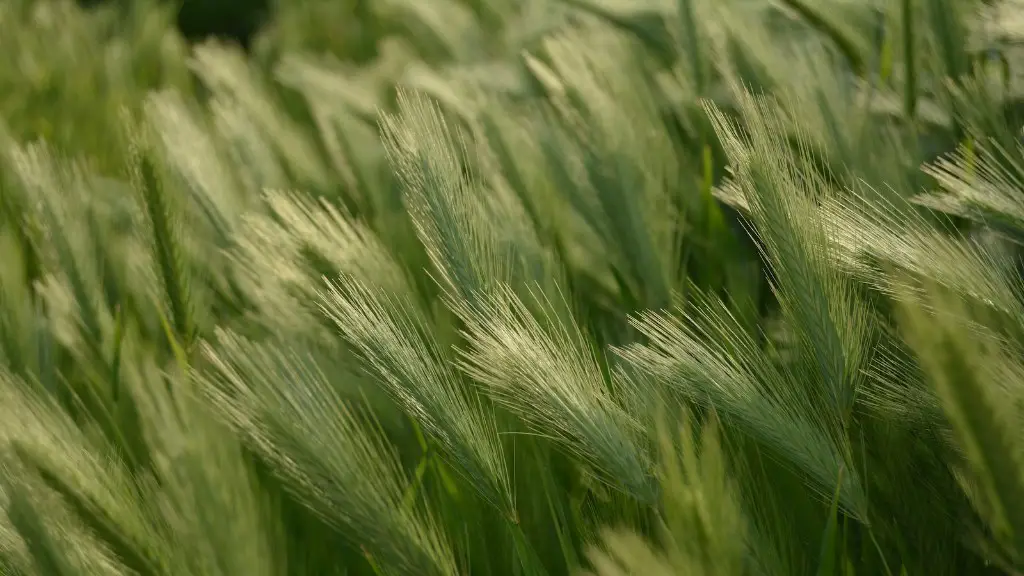Agriculture deforestation is a global issue that threatens our environment and livelihood. It involves the destruction of forest ecosystems to create land suitable for farming. According to the UN, an estimated 18.7 million hectares of forest were lost to agriculture-related deforestation in 2020. This is an alarming rate of deforestation that poses an immediate threat to the environment and wildlife.
It is important to understand the driving forces behind agriculture deforestation. One factor is population growth and the consequent need for increased productivity. To meet this demand for food, land has to be cleared for agriculture. Additionally, industrial livestock farming is another factor. Industrialized livestock production systems require large areas of land and have a devastating impact on the natural balance.
Moreover, the conversion of forests to cropland is accelerated by certain agricultural practices. These include industrial-scale monoculture farming and excessive fertilizer use that deplete the soil of essential nutrients. In areas with poor soil quality, it is difficult for trees to regenerate, resulting in deforestation.
Furthermore, government policies play an important role in Agriculture deforestation. Governments often subsidize large-scale agricultural producers, incentivizing deforestation. Additionally, they may lack effective incentives to protect forests, such as tax breaks, or provide the wrong incentives, such as the removal of subsidies for crop rotation.
To mitigate Agriculture deforestation, governments must implement policies that support sustainable agricultural production. This includes providing incentives to farmers for restoring degraded land and properly managing the land. Governments can also support agroforestry and better land use planning. Moreover, economic incentives, such as carbon payments, could help protect forests.
Industrialized industrial farming is another contributing factor to Agriculture deforestation. Industrial livestock production systems can take up large areas of land and require significant input of resources, such as water and land. These systems often generate large amounts of waste and pollutants and can contribute to air and water contamination.
In conclusion, agriculture deforestation is a very serious issue that requires immediate attention. There are several factors contributing to deforestation, such as population growth, unsustainable agricultural practices, and government policies. To reduce deforestation, governments must incentivize sustainable production, such as agroforestry, and better land use planning. Additionally, industrial livestock production systems must be carefully managed to reduce their impact on the environment.
What Causes Agriculture Deforestation?
Agriculture deforestation is caused by a combination of factors. Population growth is an important contributing factor as it leads to the need for increased land for food production. Additionally, certain agricultural practices, such as monoculture farming and excessive fertilizer use, can lead to deforestation. Government policies also play a role in Agriculture deforestation, subsidies for large-scale agricultural production incentivize deforestation.
In addition, industrial livestock production systems are another cause of Agriculture deforestation. These systems require large areas of land and generate significant amounts of waste, polluting air and water. If left unchecked, industrial livestock production systems can quickly generate large-scale deforestation.
Finally, climate change can accelerate Agriculture deforestation. There is evidence that higher temperatures and shifting weather patterns can lead to a decrease in the productivity of land, leading to its conversion to cropland. Additionally, rising sea levels can lead to the destruction of coastal forests.
What are the impacts of Agriculture Deforestation?
Agriculture deforestation has a number of impacts on our environment and livelihood. Firstly, deforestation leads to loss of habitats and biodiversity as forests are destroyed for agricultural uses. This loss of forest cover decreases the planet’s capacity to absorb carbon emissions and exacerbates climate change. Additionally, our forests provide us with invaluable resources, such as foods and medicines, which are threatened by deforestation.
Moreover, Agriculture deforestation can have dire consequences on local communities. Clearing of land increases flooding and leads to soil erosion, making it difficult to farm. This can result in food insecurity and poverty. Additionally, deforestation can lead to air and water contamination, further exacerbating poverty and ill health.
Finally, Agriculture deforestation has an economic impact. Deforestation reduces the availability of wood for fuel, lumber, and other products. Additionally, it increases the cost of food production and reduces the value of ecosystems services.
What are some Solutions for Agriculture Deforestation?
To reduce Agriculture deforestation, governments must implement policies that incentivize responsible practices. This includes providing incentives for restoring degraded land, as well as for crop rotation. Governments can also support agroforestry and better land use planning to reduce deforestation. Additionally, economic incentives, such as carbon payments, could help protect forests.
Moreover, the industrial livestock industry must be held accountable for its impact on the environment. Governments should implement regulations that reduce the environmental impacts of industrial livestock production. This includes reducing deforestation due to pasture expansion and waste management practices.
Furthermore, individuals and communities can promote sustainable food systems to reduce Agriculture deforestation. This includes supporting local farmers who practice sustainable agricultural practices, such as agroforestry. Consumers can also buy organic foods that are produced without the use of excessive pesticides and fertilizers. This reduces the pressure on land resources and helps protect forests.
Finally, corporations must be held accountable for their involvement in Agriculture deforestation. Companies should be responsible for their supply chains and the effects their operations have on forests. Governments should implement regulations that hold companies accountable for their role in deforestation, and consumers can choose to buy from companies that demonstrate responsibility for their impact on forests.
What are some Examples of Agriculture Deforestation?
Agriculture deforestation can be seen in different parts of the world. In Brazil, for example, deforestation has dramatically increased in recent years, primarily due to the expansion of agricultural practices such as soy and sugar production. Additionally, in some African countries, the expansion of industrial livestock production systems has led to a dramatic reduction in forest cover.
In addition, rapid urbanization has led to increased deforestation in many countries. To meet the growing demand for housing and infrastructure, land is cleared of forests without taking into account the potential environmental damage.
Furthermore, in some countries, illegal logging is a major contributor to deforestation. In countries such as Indonesia and the Philippines, illegal logging is rampant and often occurs in protected areas. Deforestation from illegal logging is often exacerbated by poor regulation and law enforcement.
Finally, climate change can also lead to Agriculture deforestation. Rising temperatures and shifting weather patterns can lead to a decrease in the productivity of land, leading to its conversion to cropland. Additionally, rising sea levels can cause coastal forests to be destroyed.
What are Some Potential Solutions for Agriculture Deforestation?
There are a number of potential solutions for reducing Agriculture deforestation. Firstly, governments must incentivize sustainable agricultural practices, such as agroforestry and better land use planning. Incentives could include financial rewards, such as carbon credits, or regulations.
Secondly, the industrial livestock industry must be held accountable for its role in deforestation. Regulations must be implemented to reduce the environmental impacts of industrial livestock production, such as limiting pasture expansion or enforcing waste management standards.
Thirdly, individuals and communities can support sustainable food systems by buying locally produced food. This reduces the pressure on land resources and helps to protect forests. Consumers can also buy organic products, which are produced without the use of excessive pesticides or fertilizers.
Finally, corporations must be held accountable for their involvement in Agriculture deforestation. Companies should be held responsible for their supply chains and the effects their operations have on forests. Governments should implement regulations that hold companies accountable, and consumers can choose to buy from companies that demonstrate responsibility for their impact on forests.





